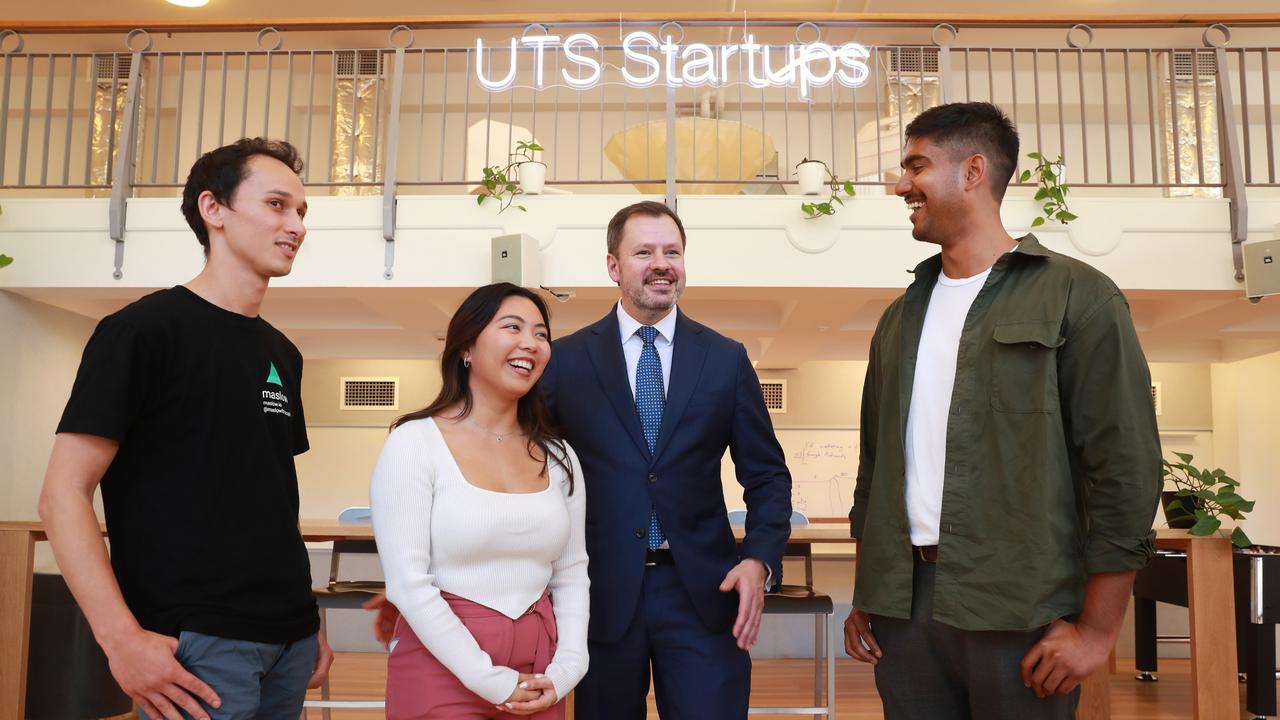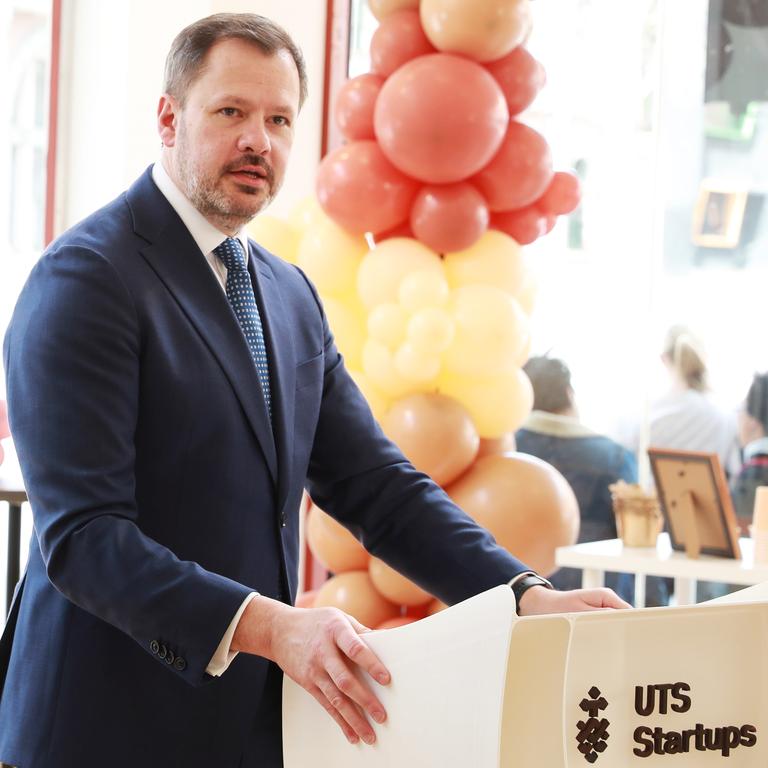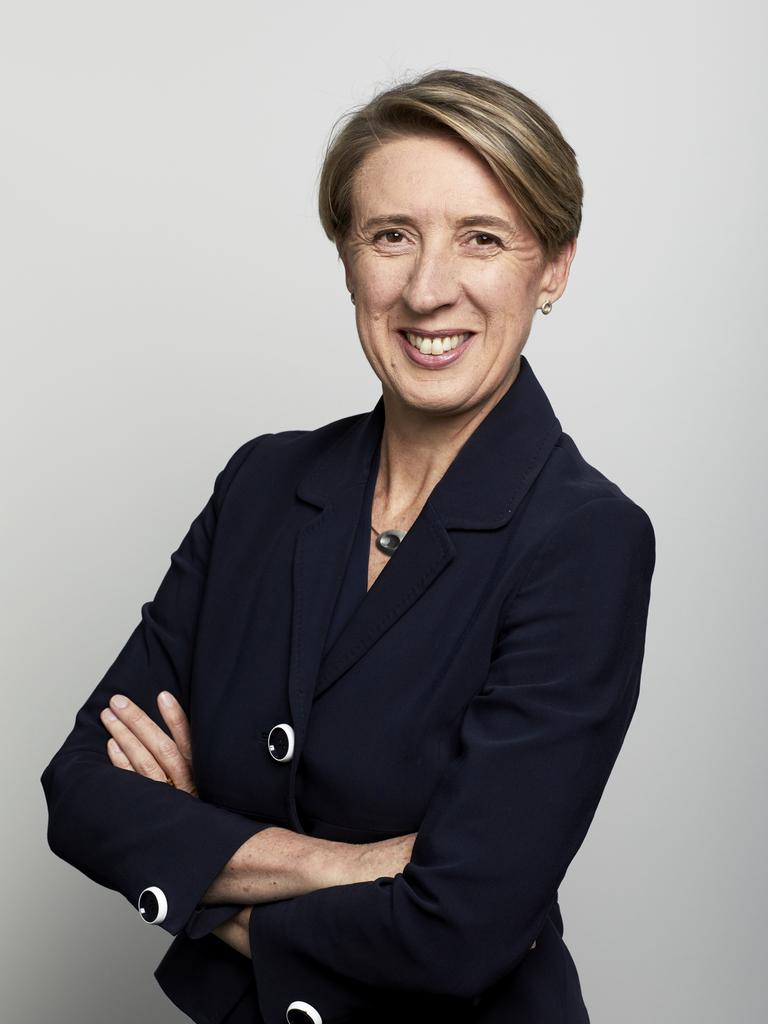Entrepreneurial boost for university students under start-up plan
Australian university students will be able to extend their study for 12 months and receive $11,000 to go toward building their own start-up.

Business
Don't miss out on the headlines from Business. Followed categories will be added to My News.
Australian university students will be able to extend their study for 12 months and receive $11,000 to go toward building their own start-up, under a move set to be rolled out by the Albanese government.
A total of 2000 students will be able to access the lump sum payment which has been described as “relatively interest free” forming part of the student’s HECS debt.
Start-up Year, which is set to launch in 2023, will see funding provided to students who successfully pitch and enter their home university’s accelerator or incubator program, of which there are about 100 around the nation.
Industry and Science Minister Ed Husic delivered the election promise to a group of students and start-up founders on Thursday at the University of Technology in Sydney’s Broadway on Thursday.
“The bigger (message) we want to send is to say that creating your own firm is a really important initiative and the country values it, and certainly this new government values it,” he said.
The move from the federal government arrives as capital has become scarce in the start-up scene, largely due to market volatility and sceptical founders.

Over the past few months, many venture capital firms have changed the advice they hand out to founders, telling them to preserve their capital and to avoid raising funds if it can be helped.
Mr Husic acknowledged this, adding that to have a “layer of capital available for people to draw at a time where they’re finding it hard to get that money” would allow the nation’s start-up ecosystem to continue to grow.
“The cost of capital is becoming more expensive. There’s been a contraction in early stage investment largely through angel investors, and you’re seeing revaluations being made by venture capital,” he said.
“We don’t need to stall. We can’t afford to stall, in terms of growth of new firms.”
Universities Australia chief executive Catriona Jackson said that financial barriers often limited the nation’s ability to grow new ideas.
“Financial barriers sometimes inhibit the growth of great ideas – and their often-transformative flow-on effects for all. We are worse off for that,” she said.
Asked whether students permitted into the Startup Year program would continue to receive youth allowance payment, Mr Husic said he was not yet sure and that it was an issue he looked to solve through a consultation process taking place over the next six weeks.
On the number of places given to accelerator programs, Mr Husic said he might seek to prioritise access to Startup Year for those in the regions who might have limited access to higher education facilities.
Minie Minarelli, a UTS honours student and member of UTS Startups, said she would apply for the program when she finishes her study in March next year.

The capital, she said, she would use to find an app designer to developer her startup which helps actors beat performance anxiety by using sports psychology.
“I can do a lot of things like marketing and social media but I can’t develop an app myself,” she said.
Education Minister Jason Clare said the new program would allow new start-ups to leverage higher education resources.
“The higher education sector has wonderful incubators and start-up support schemes, but are limited by the number of students they can take on board,” he said.
The program would also bring with it new jobs, Mr Husic said.
“We see that there’s huge job recruiting potential in some of these firms,” he said.
“Some of these firms will grow and succeed, others won’t. But the lessons that are learned when reapplied can be really powerful.”
More Coverage
Originally published as Entrepreneurial boost for university students under start-up plan









